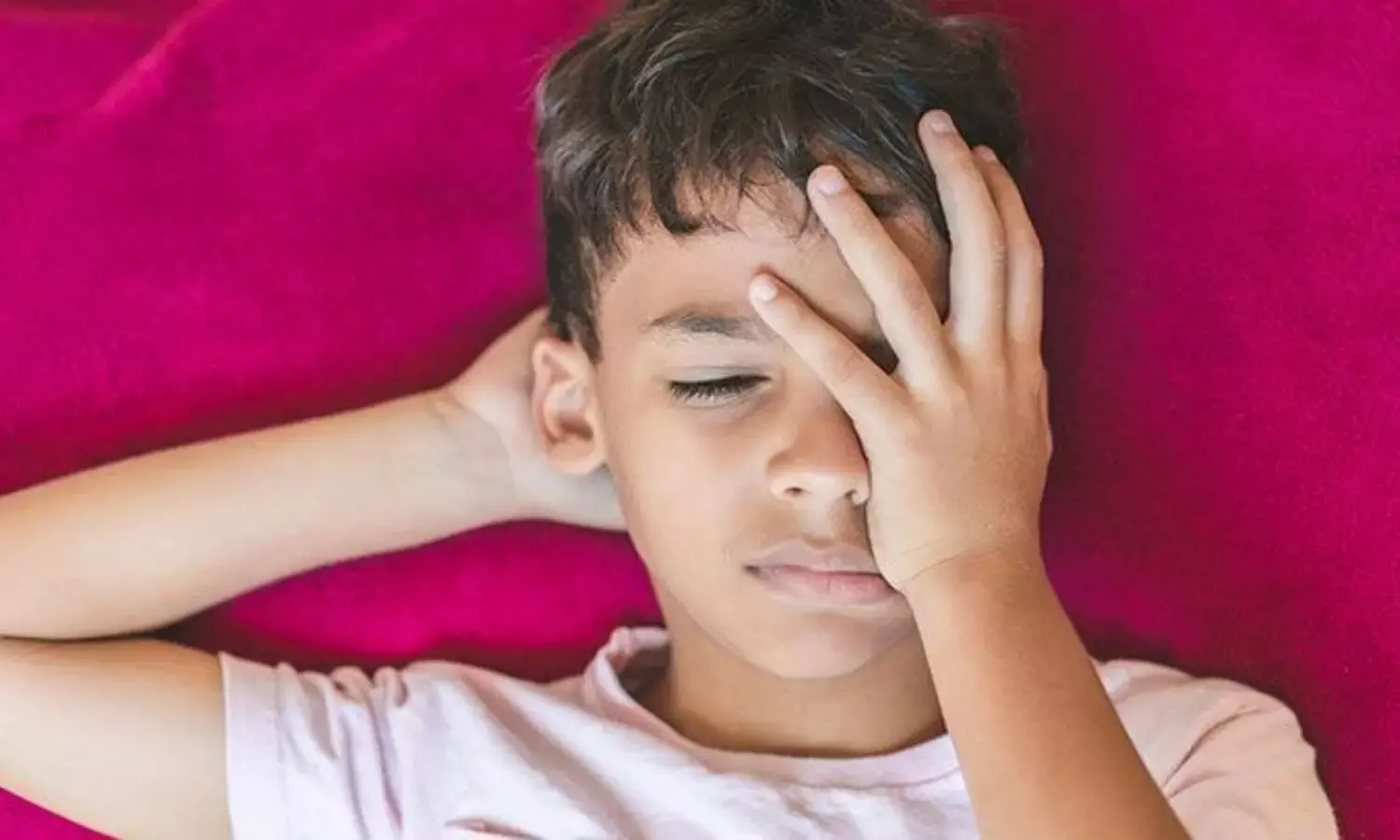- Home
- Medical news & Guidelines
- Anesthesiology
- Cardiology and CTVS
- Critical Care
- Dentistry
- Dermatology
- Diabetes and Endocrinology
- ENT
- Gastroenterology
- Medicine
- Nephrology
- Neurology
- Obstretics-Gynaecology
- Oncology
- Ophthalmology
- Orthopaedics
- Pediatrics-Neonatology
- Psychiatry
- Pulmonology
- Radiology
- Surgery
- Urology
- Laboratory Medicine
- Diet
- Nursing
- Paramedical
- Physiotherapy
- Health news
- Fact Check
- Bone Health Fact Check
- Brain Health Fact Check
- Cancer Related Fact Check
- Child Care Fact Check
- Dental and oral health fact check
- Diabetes and metabolic health fact check
- Diet and Nutrition Fact Check
- Eye and ENT Care Fact Check
- Fitness fact check
- Gut health fact check
- Heart health fact check
- Kidney health fact check
- Medical education fact check
- Men's health fact check
- Respiratory fact check
- Skin and hair care fact check
- Vaccine and Immunization fact check
- Women's health fact check
- AYUSH
- State News
- Andaman and Nicobar Islands
- Andhra Pradesh
- Arunachal Pradesh
- Assam
- Bihar
- Chandigarh
- Chattisgarh
- Dadra and Nagar Haveli
- Daman and Diu
- Delhi
- Goa
- Gujarat
- Haryana
- Himachal Pradesh
- Jammu & Kashmir
- Jharkhand
- Karnataka
- Kerala
- Ladakh
- Lakshadweep
- Madhya Pradesh
- Maharashtra
- Manipur
- Meghalaya
- Mizoram
- Nagaland
- Odisha
- Puducherry
- Punjab
- Rajasthan
- Sikkim
- Tamil Nadu
- Telangana
- Tripura
- Uttar Pradesh
- Uttrakhand
- West Bengal
- Medical Education
- Industry
Increased tablet use in children may increase risk of emotional dysregulation, states JAMA study

A new study published in the Journal of American Medical Association found that the children who started using tablets at the age of 3.5 were more likely to vent their displeasure and rage. Children in preschool are increasingly using tablets and emotional dysregulation in children has been connected to the usage of mobile devices. Few studies have been able to demonstrate a direct correlation between the tablet use and the growth of self-regulation abilities in children. Furthermore, there is a dearth of research that models within-person correlations across time. Thus, this study by Caroline Fitzpatrick and colleagues wanted to determine the extent to which within-person emotions of rage and dissatisfaction between the ages of 3.5 and 5.5 years are influenced by children's tablet use.
During the COVID-19 pandemic, a total of 315 parents of preschool-aged children from Nova Scotia, Canada, who were part of a prospective, community-based convenience sample, were followed up on at the ages of 3.5 (2020), 4.5 (2021), and 5.5 years (2022). Between October 5, 2023, and December 15, 2023, all analyses were carried out. The study used tablet use reported by parents when their children were 3.5, 4.5, and 5.5 years old as an exposure criterion. The Children's Behavior Questionnaire was used by parents to describe instances of anger/frustration expressed by their children at the ages of 3.5, 4.5, and 5.5.
The sample was split evenly between the sexes of the children and the majority said they were married (258 [82.0%]) and Canadian (287 [91.0%]). A 1-SD increase in tablet use at 3.5 years, or 1.15 hours per day, was linked to a 22% SD scale rise in anger/frustration at 4.5 years, according to a random-intercept cross-lagged panel model. A 22% SD (or 0.28 hours per day) increase in tablet use at 5.5 years was linked to a 1 SD scale rise in anger and irritation at 4.5 years. Overall, this study found that children who started using tablets at age 3.5 showed increased signs of dissatisfaction and rage by the time they were 4.5 years old. A child's propensity for rage and irritation at age 4.5 was linked to increased tablet use by age 5.5. These findings imply that early tablet usage in children may be a part of a cycle that is harmful to emotional control.
Reference:
Fitzpatrick, C., Pan, P. M., Lemieux, A., Harvey, E., Rocha, F. de A., & Garon-Carrier, G. (2024). Early-Childhood Tablet Use and Outbursts of Anger. In JAMA Pediatrics. American Medical Association (AMA). https://doi.org/10.1001/jamapediatrics.2024.2511
Neuroscience Masters graduate
Jacinthlyn Sylvia, a Neuroscience Master's graduate from Chennai has worked extensively in deciphering the neurobiology of cognition and motor control in aging. She also has spread-out exposure to Neurosurgery from her Bachelor’s. She is currently involved in active Neuro-Oncology research. She is an upcoming neuroscientist with a fiery passion for writing. Her news cover at Medical Dialogues feature recent discoveries and updates from the healthcare and biomedical research fields. She can be reached at editorial@medicaldialogues.in
Dr Kamal Kant Kohli-MBBS, DTCD- a chest specialist with more than 30 years of practice and a flair for writing clinical articles, Dr Kamal Kant Kohli joined Medical Dialogues as a Chief Editor of Medical News. Besides writing articles, as an editor, he proofreads and verifies all the medical content published on Medical Dialogues including those coming from journals, studies,medical conferences,guidelines etc. Email: drkohli@medicaldialogues.in. Contact no. 011-43720751


